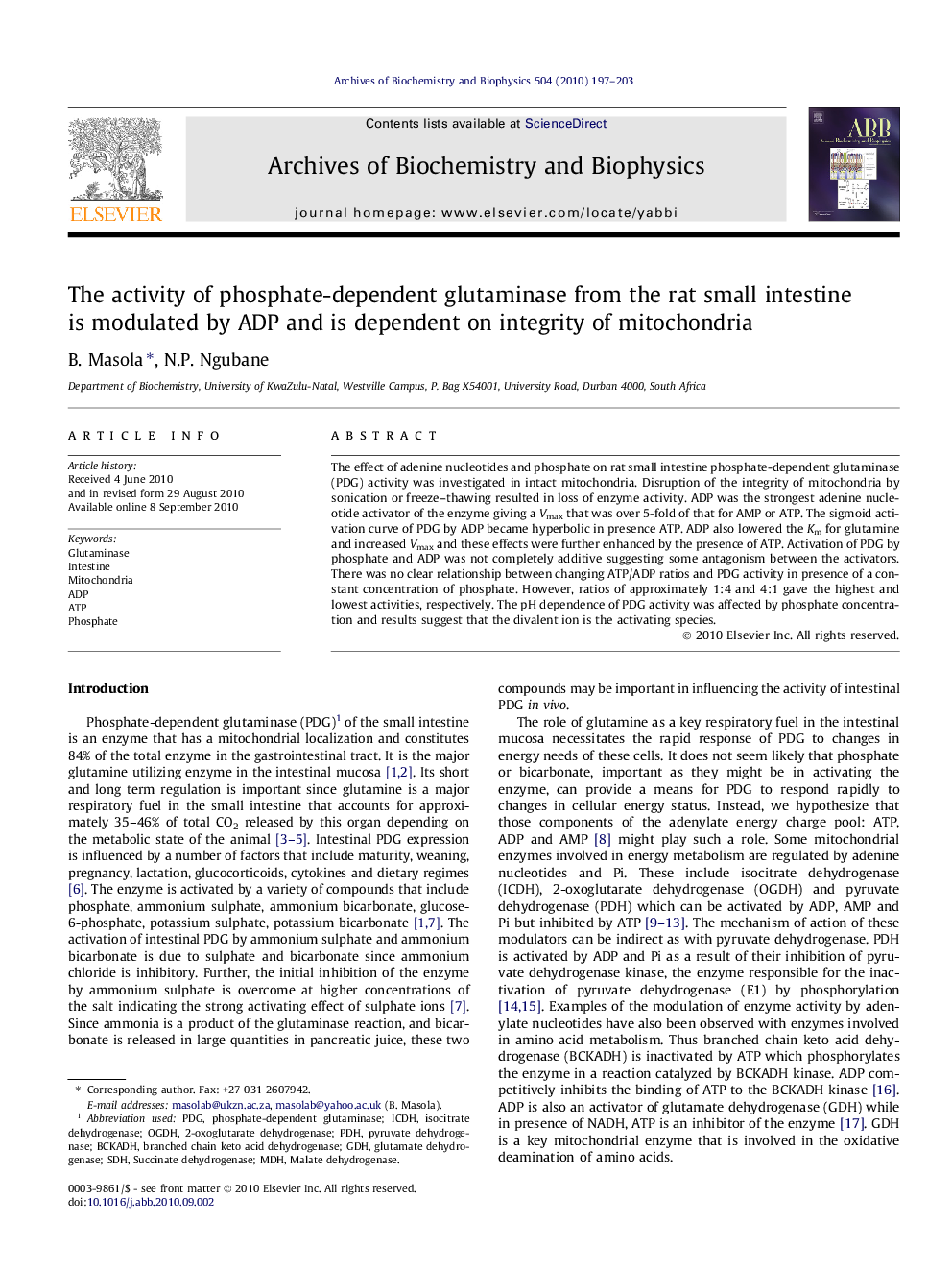| Article ID | Journal | Published Year | Pages | File Type |
|---|---|---|---|---|
| 1925968 | Archives of Biochemistry and Biophysics | 2010 | 7 Pages |
The effect of adenine nucleotides and phosphate on rat small intestine phosphate-dependent glutaminase (PDG) activity was investigated in intact mitochondria. Disruption of the integrity of mitochondria by sonication or freeze–thawing resulted in loss of enzyme activity. ADP was the strongest adenine nucleotide activator of the enzyme giving a Vmax that was over 5-fold of that for AMP or ATP. The sigmoid activation curve of PDG by ADP became hyperbolic in presence ATP. ADP also lowered the Km for glutamine and increased Vmax and these effects were further enhanced by the presence of ATP. Activation of PDG by phosphate and ADP was not completely additive suggesting some antagonism between the activators. There was no clear relationship between changing ATP/ADP ratios and PDG activity in presence of a constant concentration of phosphate. However, ratios of approximately 1:4 and 4:1 gave the highest and lowest activities, respectively. The pH dependence of PDG activity was affected by phosphate concentration and results suggest that the divalent ion is the activating species.
Research highlights► Intestinal phosphate-dependent glutaminase(PDG) activity is destabilized perturbations of mitochondrial membranes. ► ADP is an activator of intestinal PDG that is more potent than phosphate. ► The activation of the enzyme by ADP is cooperative and is allosterically modulated by ATP. ► Phosphate concentration shifts the pH-PDG activity curve and affects maximal activity.
